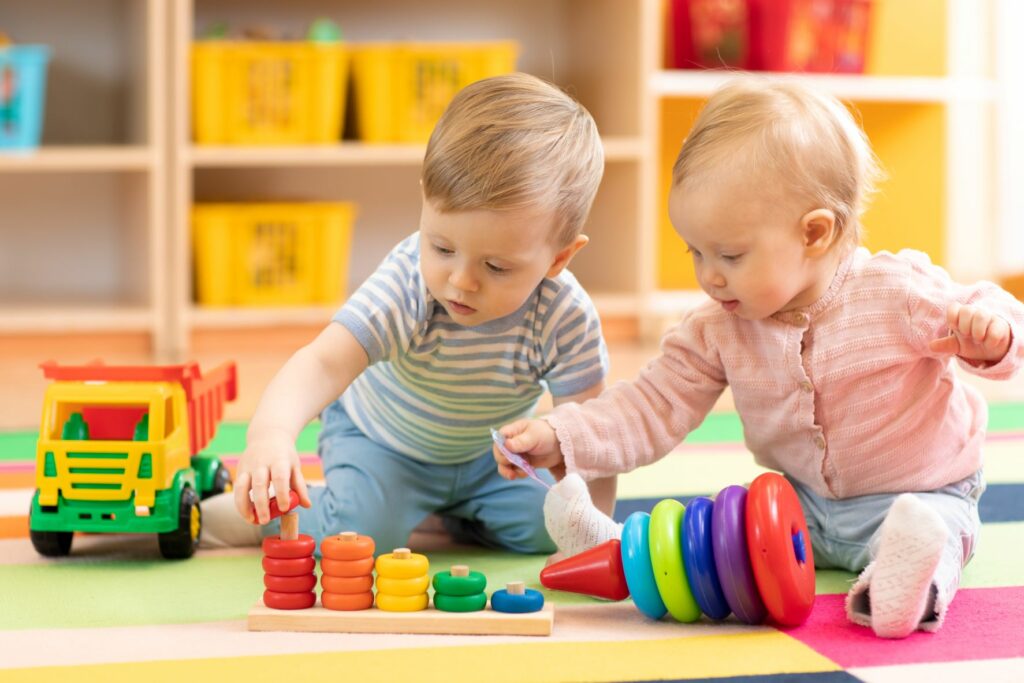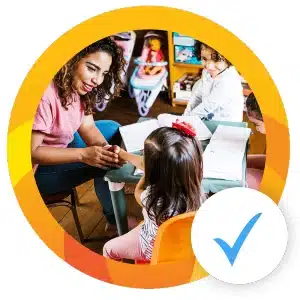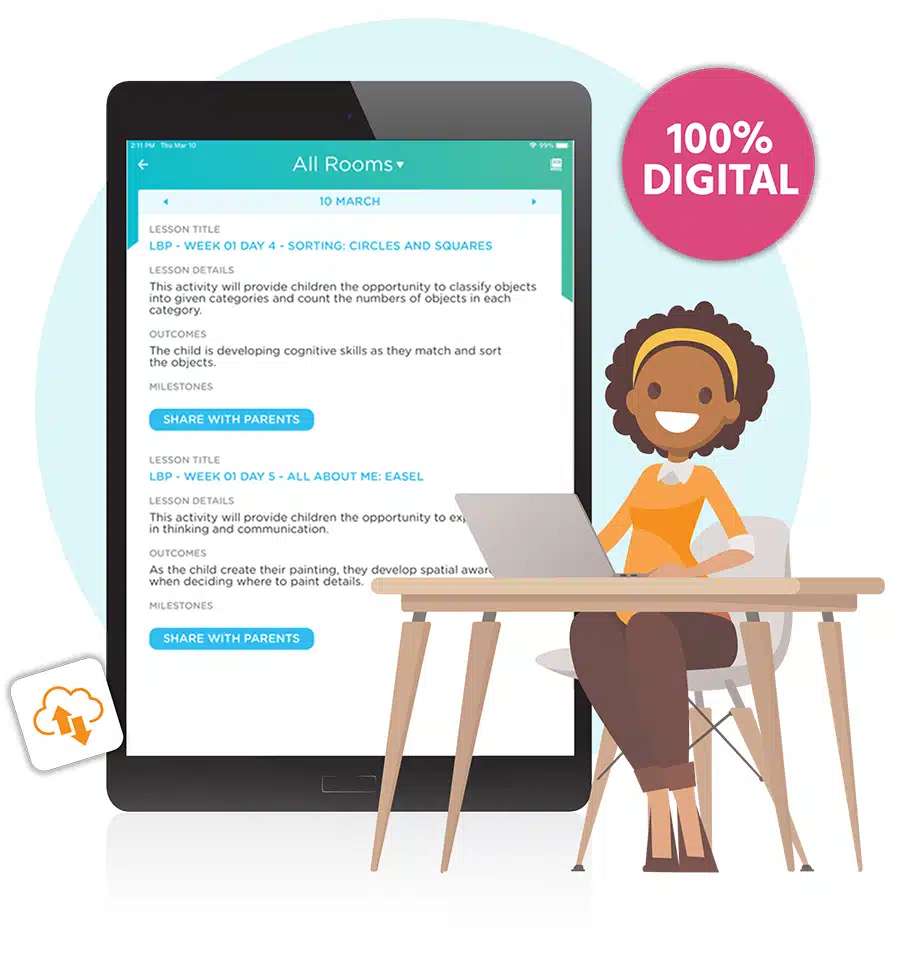
This blog was initially posted on April 26, 2022, and updated with new information on June 24, 2024.
How do you choose the right child care center for your kids?
Of course makes sense to look for centers that are close to your home, have a favorable reputation and take child safety seriously.
You also must evaluate the specific curriculum used by each center you’re considering.
A child care center’s curriculum can tell you a lot about a center. What does it value? What kind of experience does it provide children? And will your child thrive in this environment?
In addition, studies show that child care center curriculum plays a major role in a kid’s social development, academic success and economic standing throughout his or her life. So you want to choose a center with the right curriculum so that your child can thrive.
A structured curriculum program gives a child care center a competitive advantage and provides the necessary foundation to prepare children for kindergarten. A high-quality and structured Pre-K curriculum benefits the children by establishing measurable benchmarks and learning outcomes.
Let’s take a look at five important questions you should ask about a child care center’s curriculum before you enroll your kids in their program.
1. What Curriculum Does the Center Use?
Many curriculum offerings abound, but it’s critical that a child care center use a curriculum program that is designed for early childhood education, and covers all the educational needs of babies through pre-kindergarteners.
If the center uses a curriculum that relies on books and binders full of paper, is the curriculum current? Often, curriculum providers make centers pay for updated books that are often costly, which might make a center opt to continue using outdated materials.
Curriculum is a key player in helping educators to keep up with the speed of changing trends, technology and skills that students will need in the future, according to the World Economic Forum.
A good curriculum should never be a one-and-done plan, never to be changed. It must be adaptable. And a curriculum hidden in a paper-stuffed binder, or aged textbooks, isn’t how best to meet the needs of children in the 21st century.
2. Does Its Curriculum Follow a Developmental Progression?

Younger learners need curriculum with content that suits a developmental progression.
“Ideally, the curriculum is planned in a coordinated fashion across age and grade spans so that children’s knowledge and skills are developed in a coherent, aligned manner, with each age or grade span building on what was learned previously,” according the National Association for the Education of Young Children.
Before enrolling your child in a center, ask how said center monitors a student’s progress through its curriculum.
Do they have a tracking plan in place? How do teachers decide when a student has mastered a lesson and is ready to move on to the next one? Do they assess kids on a regular basis?
Every child develops at a different pace. When child care centers don’t do individual evaluations, some students fall behind. Others get bored because they’ve already mastered the material, but haven’t been allowed to progress. Neither situation is ideal.
The child care center you trust your kids with should have a way to track student growth, both academically and socially, and share it with parents.
2. How Does the Center Share Its Curriculum with Parents?
Your involvement in your child’s education is essential. In fact, an EdSource report found that parental involvement was the single most important factor when it comes to a child’s academic success.
Ask how a child center shares its curriculum with families. What kind of updates will you get, and how often? Do teachers send real-time updates through an app so you can see what your child is doing during the day? Are such updates automated, or will you have to rely on keeping track of paper reports?
4. Are Teachers Responsible for Creating Curriculum?

Without access to structured curriculum, teachers are tasked with creating learning programs outside of the classroom, which is costly and time consuming.
New teachers often are overwhelmed in their new roles, spending an average of four months getting up to speed on process and assessments. And if there’s no online record of a child’s learning journey, it can be especially difficult for someone new to the role to step in and take over.
5. What Does the Curriculum Include?
A high-quality curriculum should give ensure a focus on STEAM learning — science, technology, engineering, arts and mathematics. Hands on means brains on!
And the curriculum must beyond classroom skills. It also should emphasize social and emotional development.
Get the Info You Need on Child Care Center Curriculum

Asking the right questions about curriculum before enrolling your kids in a center will help ensure they get the best education, and best care, possible.
That’s where Procare Early Learning, an online curriculum solution to address the needs of daycares, preschools and early learning teachers, comes in!
This 100% digital offering is seamlessly embedded into Procare and gives teachers everything they need to provide high-quality instruction for infants to pre-K at their fingertips.
No more expensive books, binders or kits, no long hours preparing lessons and no stress for the teachers – just log in, organize pre-loaded lessons per classroom and by age group and let the learning begin!
Want to see how much time and money your center could potentially save with an all-digital curriculum? Use our calculator to see!
Request a Demo
Request a demo and talk with one of our friendly Procare experts to get a tailored child care solution for the unique needs of your business.



